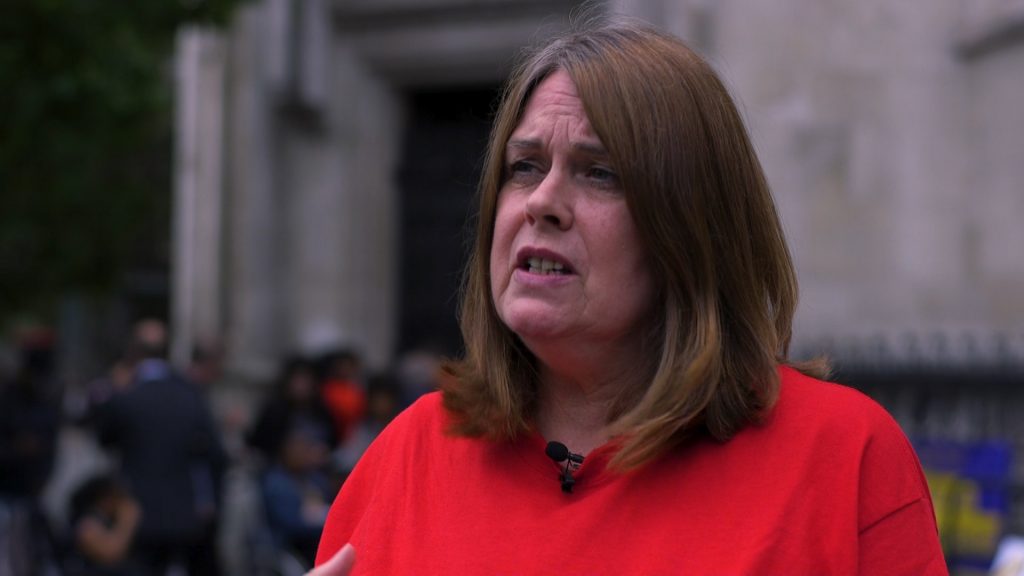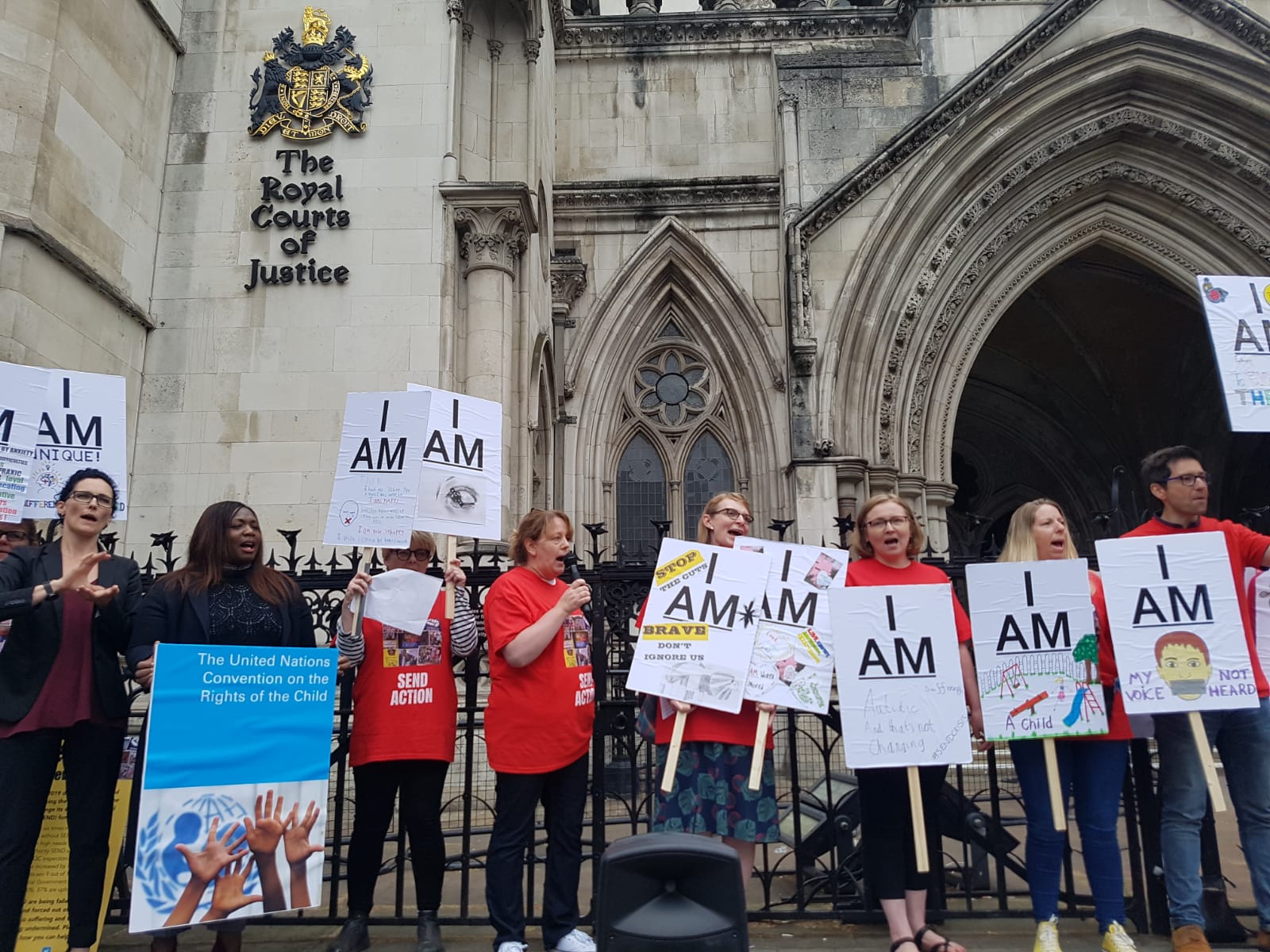The government has failed to respond to an “obvious” funding crisis which could “blight” the future of thousands of children with special educational needs, the High Court has heard.
Three families have taken the government to a judicial review accusing it of failing to give local authorities enough money to meet their legal obligations to children with special educational needs and disabilities (SEND).
The High Court today (June 26) heard that a projected SEND funding shortfall of up to £1.6billion by 2021 is leaving councils “secretly and unlawfully trying to find ways of saving money” and unsustainably dipping into their reserves.
Among the claimants, who have brought the case on behalf of children across England and Wales, is Lorraine Heugh.
Speaking outside the Royal Courts of Justice, she told RightsInfo of her years of legal battles against East Sussex County Council in a bid to secure funds for her 15-year-old son Nico – who has autism and anxiety – to have the support he needs to attend a mainstream school.
“It has been years of anxiety, years of late nights reading the law,” she said. “It ends up consuming your life, you never get a chance to get away from it.”

Lorraine Heugh. Image Credit: Rhys Norman.
‘A Genuine Crisis In SEND Funding’
Barrister Jenni Richards QC told the court that the process by which Chancellor Philip Hammond and Education Secretary Damian Hinds made SEND funding decisions in late 2018 was unlawful as it was not based on a “proper understanding” of three things:
- The “nature and extent” of the SEND funding crisis
- The impact on local authorities unable to comply with their statutory duty
- The impact on “highly vulnerable children and young people of not doing more or deferring a decision on whether to do more”.
“We say the decision on funding must be informed by consideration and calculation of the extent to which funding, or lack of funding, is having a detrimental impact,” Ms Richards said.
“By Autumn 2018, it should have been apparent to both defendants that there was a crisis in funding and calls on all sides for the injection of additional funding.
“And it should have been obvious that children with SEND were being disadvantaged in their wellbeing and their education jeopardised.”
By failing consider these factors in its decision-making on funding, Ms Richards argues the government has breached its equality duty under the Equality Act as well as Article 14 of the Convention of Human Rights – the right not to be discriminated against.
Department for Education statistics, she said, showed a “rising demand” for SEND funding, which had “not been matched by anything like a commensurate increase in funding”.
Figures published by the government show that the number of people aged 16-25 with a statement or Education, Health and Care plan (EHC) rose from 25,540 in January 2015 to 84,260 by January 2018.
However, the Chancellor failed to unveil any additional funding for SEND in his autumn budget in October last year.
While a £350m funding boost unveiled by Education Secretary Damian Hinds in December was described by Ms Richards as “barely a sticking plaster in relation to the scale of the problem”.
Ms Richards detailed the “detrimental impact” of the current funding levels by citing numerous reports and statistics from councils, charities and regulators across the country.
A written submission from Birmingham City Council described funding levels “woefully inadequate” while a Sutton County Council’s treasurer Gerald Almeroth labelled the situation as “financial unsustainable.”
Advice charity SOS!SEN raised concerns that councils had adopted “unlawful practices” in a bid to save money. These include imposing higher thresholds than the law allows for carrying out EHC assessments or putting in place unofficial plans to swerve their statutory duties.
This has the potential to blight the lives of these children forever, seriously limiting the scope for them living independent lives as adults.
Jenni Richards QC
In a written submission, Ms Richards concluded: “The evidence strongly supports the contention that there is a genuine crisis in SEN funding.
“Importantly, it is not the case that the shortfalls in funding are currently being absorbed by local authorities with relatively little impact on front line provision.
“On the contrary, the direct result of the lack of funding is that children with SEN are not being properly educated.”
She added: “This has the potential to blight the lives of these children forever, seriously limiting the scope for them living independent lives as adults.”
Speaking outside the Royal Courts of Justice this morning, National Education Union general secretary Kevin Courtney said that the number of children identified as having SEND who are not in any education setting has risen to more than 8,500 this year, according to census data.
“What is really shocking for me is the cavalier disregard the government has for these kids,” he said.
The hearing is set to continue tomorrow with Mr Justice Lewis handing down a judgement in due course.







